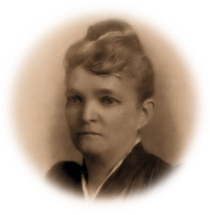Sunday, Dec.—, 1860.—In this season for peace I had hoped for a lull in the excitement, yet this day has been full of bitterness. “Come, G.,” said Mrs. F. at breakfast, “leave your church for to-day and come with us to hear Dr. ______ on the situation. He will convince you.” “It is good to be convinced,” I said; “I will go.” The church was crowded to suffocation with the élite of New Orleans. The preacher’s text was, “Shall we have fellowship with the stool of iniquity which frameth mischief as a law?” … The sermon was over at last and then followed a prayer …Forever blessed be the fathers of the Episcopal Church for giving us a fixed liturgy! When we met at dinner Mrs. F. exclaimed, “Now, G., you heard him prove from the Bible that slavery is right and that therefore secession is. Were you not convinced?” I said, “I was so busy thinking how completely it proved too that Brigham Young is right about polygamy that it quite weakened the force of the argument for me.” This raised a laugh, and covered my retreat.
Note: To protect Mrs. Miller’s job as a teacher in post-civil war New Orleans, her diary was published anonymously, edited by G. W. Cable, names were changed and initials were generally used instead of full names—and even the initials differed from the real person’s initials. (Read Dora Richards Miller’s biographical sketch.)
